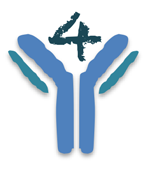IgG4 Related Disease

About IgG4 Related Disease
Immunoglobulin G4-Related Disease (IgG4-RD) is a condition causing inflammation inside the body. It can affect many different organs and so people can have wide ranging symptoms. The pancreas is most commonly affected, followed by the bile ducts in the liver, the salivary glands and the kidneys. It is difficult to diagnose as there is no single test and although treatment with steroids is effective, the better treatments that prevent relapse are needed. The IgG4 Registry study aims to discover the pathways that lead to the disease and find out what happens to patients with IgG4-RD in order to develop better diagnostic tests and treatment.
What causes IgG4-RD
The cause of IgG4-RD is currently unclear. It is most commonly diagnosed in men aged 60 and over, however it can affect adult men and women of all ages. The immune system appears to be overly activated and causes damage to some organs in the body. Research to further understand the disease is ongoing.
Symptoms
Many different organs can be affected, symptoms can be wide ranging and some patients have no symptoms at all. If the pancreas and or bile ducts are affected patients often turn yellow (jaundice) and have abdominal pain. These symptoms are not specific to IgG4-RD and further tests are necessary to make the diagnosis.
The diagnosis of IgG4-RD is often difficult as the condition can mimic many other diseases. There is no single test to diagnose the disease. A combination of symptoms, blood tests, scans and sometimes tissue samples are used together. Results are discussed by doctors of several specialties in a ‘multi-disciplinary team meeting’ (MDT) to determine the diagnosis.
Treatment
Effective treatment is with medications that dampen down the immune system. Initial treatment is with steroids, most commonly prednisolone. Other medications used to try and prevent the disease reoccurring include azathioprine, mycophenolate, methotrexate and rituximab. Sometimes the affected area can be removed surgically.
Prognosis
IgG4-RD is a long-term condition. Symptoms usually respond to treatment with steroids but the disease can reoccur at the same site or in different organs at a later date. If the inflammation in an organ goes on for a long time, sometimes it can be damaged and not work effectively. Specialists, who monitor for signs of recurrence, follow up patients long-term.

